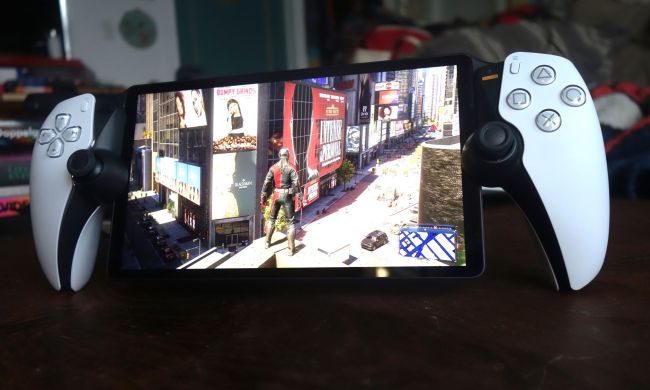The Apple Vision Pro hasn’t exactly been the success Apple may have been hoping for. The pricey headset has struggled to find a mainstream audience since launch and we may be seeing the end result of that slow adoption soon. Apple Insider reports that production on the headset has significantly slowed and that Apple may stop making new ones altogether since it’s sitting on such an overflow. Whatever happens, it’s starting to feel clear that this iteration of the headset won’t be a breakthrough device.
That doesn’t mean that there aren’t still developers who believe in it, though. One of its biggest early supporters is Resolution Games, a developer that has released several games on the platform since launch, including a version of its hit Demeo. Rather than backing off, Resolution will double down on the platform next year with Gears & Goo, its first game built exclusively for Apple Vision Pro. It’s the kind of proof of concept that Vision Pro needs to convince buyers that there are worthwhile apps on the platform.
Ahead of its January 9 release date, where it’ll come to Vision Pro as part of Apple Arcade, Digital Trends took Gears & Goo for a spin. We found a solid tower defense game that makes great use of the tech’s top-tier passthrough and precise hand controls. It’s not a killer app by any means, but it’s a reminder of what a device like Vision Pro stands to offer players if more developers adopt it.
Tower defense, reimagined
Gears & Goo feels a bit like a good proof of concept rather than a must-buy game. It’s a straightforward tower defense game that has players mining for supplies, building troops, and sending them to destroy alien towers. It’s a lighthearted little strategy game filled with colorful ooze and cute critters. My demo would take me through its first few missions, introducing me to its tactile controls and its mixed reality visuals.
When I fire the game up, I’m not tossed into a black screen. Rather, a giant floating land mass appears in the room in front of me. By pressing my fingers together, I can drag the board to rotate it or resize it. I shrink it down a bit so I can see the whole lay of the land easily from a sitting position and then get ready to fight.
The loop here isn’t too innovative for the genre. First, I drag some workers over to a tree and rock to start mining materials. Once I have enough, I build a barracks and start pumping out long and close range attackers. They start marching toward an enemy base and auto-attacking enemies along the way. The only thing I can do to help them is switch pads on the ground to reroute them down different lanes. Once they overtake an enemy structure, I can form a new base there and start pumping out even more troops or laying down defensive turrets. It’s all classic tower defense without many twists.
It doesn’t really need one, though, because the platform is what makes it stand out. Everything I’m describing is controlled with nothing more than my eye and some simple hand gestures. The Vision Pro’s impressive eye-tracking shines here, as I can stare at an option on a menu to select it with accuracy. It’s as good as using a mouse. I don’t select the wrong button at any point during my demo, which is surprising considering that some of the UI icons are rather small.
The hand controls are similarly natural. To pick up a minion, all I need to do is stare at it and then pinch my thumb and index finger together. I instantly pluck my little pal from the board and plop it down where I want by releasing the gesture. That same motion is used to select menu options and flip route tiles, making it a bit of a “one-button” game. When I build a new home base on one level, I swing the board around with my fingers to put it right in front of me. I don’t need a tutorial to pick any of this up; it’s second nature from the jump.

It’s not the kind of game that’s going to make anyone rush out to buy a Vision Pro. If anything, it’s a cute extra for those who already have one. What my demo shows, though, is just how much potential devices like the Vision Pro have as gaming platforms. There’s something very satisfying — futuristic even — about using my hands and eyes so accurately as a controller to manipulate a board that’s appearing in real space. I instantly get the appeal of games like Triangle Strategy making the jump to mixed reality, as the tech really feels built for strategy games where players place units and select attacks from a menu.
Resolution Games especially seems to understand what kinds of games are a match for the tech. Its previous games have translated to Apple’s device naturally, but it’s clear that Gears & Goo was built for it first. It is to Vision Pro what Astro’s Playroom is to PS5; it’s a polished tech demo that shows players exactly how a few basic gestures can control a game world. Resolution tells me that it’s committed to exploring mixed reality further, so it could wind up becoming Apple’s secret weapon when it comes to expanding its gaming footprint.
I don’t expect Gears & Goo to be a smash hit, but it’ll make one heck of a convincing Apple Store demo. Maybe that’s what the Vision Pro needs most of all right now.
Gears & Goo launches on January 9 for the Apple Vision Pro.




